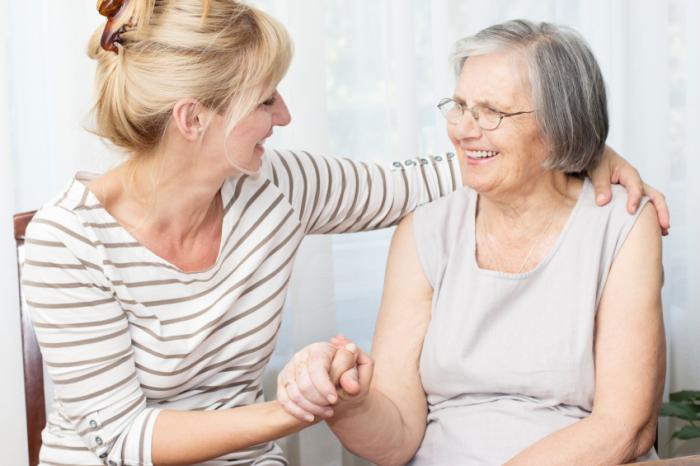
The new study shows that daughters spend twice as much time each month caring for elderly parents than sons do, revealing gender inequalities in parent care.
The research, led by Angelina Grigoryeva, a doctoral candidate in sociology at Princeton University in New Jersey, reveals a gender inequality issue in parent care, and she says this is especially significant, due to the consequences for caregivers.
“Numerous empirical studies report negative mental health consequences,” says Grigoryeva, “including a higher mortality rate, for people who provide care for elderly family members.”
She adds that such caregivers frequently juggle caring for their parents with employment, possibly resulting in career sacrifices and lower earnings.
In addition, caring for elderly relatives can create financial difficulties for caregivers since they so often pay for items needed for those they take care of.
In recent news on gender inequalities regarding health, Medical News Today reported on a study that suggested strong family ties, genetics and gender produces different consequences for men and women when it comes to substance abuse. Specifically, the researchers found that the demands of relationships could be overwhelming for women – not men – with a sensitivity to stress.
And previous research has suggested that women suffer from higher negative consequences linked to caregiving than men. Regarding her latest study, Grigoryeva says the negative side effects of caring for elderly parents could have “potentially intensifying effects on a series of gender inequalities pertaining to health and economic well-being.”
‘Gender inequality remains acute when it comes to elderly parent care’
To conduct her research, Grigoryeva used data from the 2004 arm of the University of Michigan Health and Retirement Study, which surveyed a nationally representative sample of over 26,000 Americans over the age of 50 in 2-year intervals.
Results of her study revealed that daughters spend an average of 12.3 hours caring for elderly parents each month, compared with sons, who spend an average of 5.6 hours.
“In other words,” says Grigoryeva, “daughters spend twice as much time, or almost 7 more hours each month, providing care to elderly parents than sons.”
Grigoryeva adds:
”Whereas the amount of elderly parent care daughters provide is associated with constraints they face, such as employment or childcare, sons’ caregiving is associated only with the presence or absence of other helpers, such as sisters or a parent’s spouse.”
She also found gender is the single most important factor in the amount of time each sibling provides when siblings are in mixed-sex sibling groups. For example, sons tended to reduce their caregiving efforts when they have a sister, whereas daughters tended to increase their time when they have a brother.
Grigoryeva says this “suggests that sons pass on parent caregiving responsibilities to their sisters,” and adds that although “the US has been gradually becoming a more gender egalitarian society since the 1970s, my study shows gender inequality remains acute when it comes to elderly parent care.”
Written by Marie Ellis



